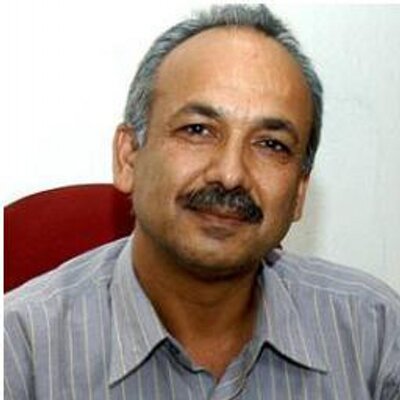KATHMANDU- An independent member of Nepal’s Parliament, Amaresh Kumar Singh, took off his shirt and vest in the House in protest this week after he was not allowed to speak on an alleged illegal racket to send Nepali citizens to the United States as Bhutanese refugees.
A dozen people including the influential Nepali Congress leader Balkrishna Khand — who was Home Minister in the July 2021-December 2022 government of former Prime Minister Sher Bahadur Deuba — a former Member of Parliament, and a serving Secretary to Nepal’s government, have been arrested in connection with the “refugee scam”.
Reports in the media have pointed to a syndicate of politicians and government officials at the heart of the alleged human-trafficking ring.
Refugees and racket
For over three decades, Nepal has been home to more than 120,000 Bhutanese refugees, who left their country after Bhutan’s government put certain restrictions on the religious and cultural practices — and even dress — of people of Nepali origin, in the 1980s.
India, where the refugees first reached, was not welcoming, and quickly pushed them to Nepal. This was in 1989, when India-Nepal relations had hit a trough after the Rajiv Gandhi government imposed an 18-month economic blockade on Nepal, ostensibly to punish it for buying weapons from China.
Over a decade from 1992 onward, Nepal and Bhutan held 15 rounds of talks on the repatriation of the refugees, which yielded no results. India refused to mediate, and asked its neighbours to sort out the issue between themselves.
At this stage, seven western countries — the US, Canada, New Zealand, the Netherlands, the United Kingdom, Norway, and Australia — agreed to take in a total 113,307 Bhutanese. After this process ended in 2019, a committee set up by the government of then Prime Minister K P Oli recommended there were still 429 individuals who were eligible for third-country settlement, and that they should be issued refugee identity cards.
However, the alleged syndicate corrupted the list, targeting vulnerable individuals on it, and trying to inflate it by claiming many refugees had been left out of the resettlement process. Huge sums of money allegedly exchanged hands on the promise of a smooth flight abroad.
Arrests and uproar
When the plans of some of those who had paid did not work out, they complained to the Commission for Investigation of Abuse of Authority, Nepal’s constitutional anti-corruption body, and the police. The alleged victims said they paid Rs 1-5 million as “part or advance” payment for resettlement overseas.
Earlier this month, an arrest warrant was issued for Top Bahadur Rayamajhi, who was Deputy Prime Minister in the government of K P Sharma Oli. Rayamajhi, who was suspended as secretary of Oli’s Communist Party of Nepal-Unified Marxist Leninist (CPN-UML) on May 10, is absconding; his son Sandeep Rayamajhi is under arrest.
Keshab Dulal, an aide to Nepali Congress leader and former Deputy Prime Minister Sujata Koirala, was the first to be arrested and interrogated. Indrajit Rai, a former member of Nepal’s constituent assembly who was security adviser to Ram Bahadur Thapa ‘Badal’, Oli’s Home Minister in 2018-21, was arrested on May 2. Balkrishna Khand, the Nepali Congress leader, was arrested on May 10.
Badal’s son Prateek Thapa is said to be on the “wanted” list for involvement in the racket.
Despite several corruption scandals over the past decade and a half of loktantra, Parliament has rarely debated graft, or sought to hold the government accountable. However, the refugee scam was seen as devaluing Nepal’s sovereignty itself, with protesters being called traitors.
Amaresh Kumar Singh, the independent lawmaker who took off his shirt in Parliament, had earlier alleged that Nepal was being run by “Pampha Devis”, a reference to an allegation from three decades ago that the country’s then Queen Aishwarya had stashed away money in Swiss banks in the fictitious name of “Pampha Devi”.
Political fallout
The protests over the refugee scam has for the first time challenged the impunity that leaders in both government and opposition have traditionally enjoyed in the House. The scandal has become an emotive issue of nationalism, with the alleged traffickers — including politicians and bureaucrats — being seen as trading in human beings for financial gain.
Facing the heat, Prime Minister Pushpa Kamal Dahal ‘Prachanda’ on May 11 put on hold a licence to set up a private stock exchange in the country amidst allegations that the process may not have been entirely transparent. While Prachanda continues to put on a brave face over the trafficking scandal, he probably realises that the breach in the political arrangement of ‘impunity to all’ could ultimately see the floodgates being opened, with his own name featuring in several alleged scams. The probe into the refugee scam could trigger the beginning of many other investigations, which may threaten the political careers of top leaders of all major parties.
This article first appeared in The Indian Express.

